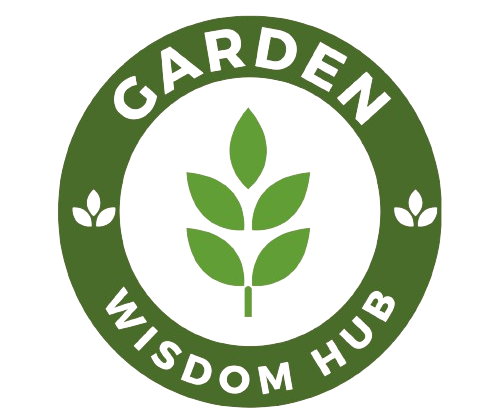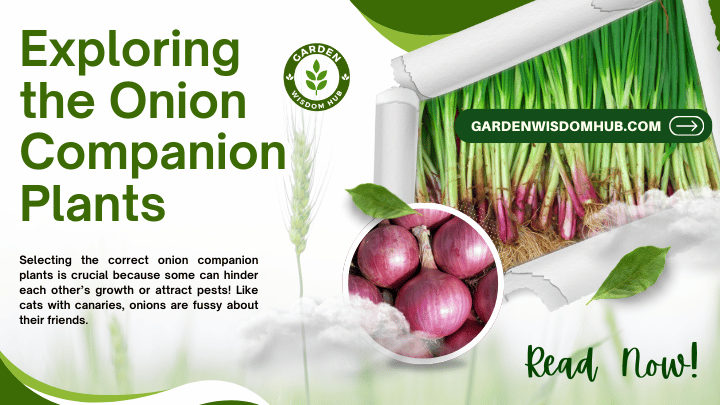What should not be planted next to onions?
Selecting the correct onion companion plants is crucial because some can hinder each other’s growth or attract pests! Like cats with canaries, onions are fussy about their friends.
Like kids in a candy store, they have their own must-haves and favorites. Avoid planting onions near beans, peas, and lentils to avoid problems! Like combining oil and water—no good comes of it.
These onion companion plants compete for nutrients with onions, slowing their development and production. A disaster waiting to happen! Garlic, chives, and leeks, which compete for nutrients and are susceptible to pests and diseases, should be avoided.
Poor selections include broccoli, maize, and mint! They’re like the three musketeers of bad decisions—always ready to disrupt the party and leave a sour taste.
When broccoli and onions are grown together, they may attract aphids and cabbage worms, making them easy prey! Corn is like a ravenous hippo at a buffet, eating up all the nutrients and making the soil sick, which might hinder onion growth. Mint is like that enthusiastic party guest who crashes the party, taking the spotlight and leaving onions scurrying for the spoils!
Can onions and cucumbers be planted together?
In the garden, onions and cucumbers get along, but step carefully or you could get into trouble. These plants get along well, but you’ll need to give them some space to avoid resource conflicts. Like overzealous garden party guests, cucumbers spread all over and dominate the sunshine, leaving onions in the shade and feeling left out! Like sunbathers, onions love every ray.
Make sure those cucumbers are climbing high or on their own trip, or they may host a shadow party onions won’t want to attend! With a little elbow work and smart spacing, onions can keep aphids away from cucumbers, while cucumbers keep the soil moist like a sponge in a rainstorm.
Can I plant onions next to tomatoes?
Onions and tomatoes get along well and aid each other in the garden. A vegetable pairing made in heaven! With their powerful perfume and sulfur components, onions can repel aphids, thrips, and onion flies while protecting tomato plants! By planting onions adjacent to tomatoes, you can create a natural insect barrier and reduce the risk of an infestation.
Onions may deter pests from tomatoes, like a magician plucking a rabbit from a hat. Onions are the garden’s little elves, working behind the scenes to add organic magic to the soil, giving it structure and health! Finding companion plants for onion is like finding a needle in a haystack. The soil, where you sow your seeds and any pests can affect the results. To find what works best in your paradise, watch how they get along.
What grows like an onion?
In the Allium family, onions join garlic, shallots, leeks, and chives a veggie reunion! These two plants thrive in their happy little corner of the universe, sharing the same comfy digs and nutrients.
They prefer their dirt like ducks like water well-drained and not soggy. Keep it moist but not swimming, and aim for a tightrope-walking pH of 6.0 to 7.0.
The family knows how to keep pests away. Their powerful scents seem like a secret weapon to drive insects away! Yes, “birds of a feather flock together,” but these plants should be kept at a distance! Like bees to honey, they attract pests and diseases despite their identical growing demands. For a healthy garden, give them space and play it safe.
Best and worst companion plants for onions:
Some plants help onions flourish, while others are troublemakers who want to steal the spotlight or disrupt things. Onions choose their friends well! They’re stuffed with carrots, beets, cabbage, lettuce, spinach, nasturtiums, and dill.
A garden party happens when these veggies gather! Coumarin in carrots repels onion flies, making them veggie bouncers! Beets are the unsung heroes of the garden, plunging deep with their taproots to shake up the soil without hogging nutrients! Nasturtiums and dill attract pest-fighting insects! Beans, peas, garlic, and broccoli are as welcome as a skunk at a garden party because they compete for nutrients or attract pests.
Companion gardening onions:
Onions companion plants are the finest companions for onion crops, helping them develop and stay healthy! Carrots, lettuce, and beets pair well with onions like peas. Carrots are garden bouncers, driving pests away with their chemicals.
They grow tall and proud, making them ideal housemates for onions no resource disputes, just veggie harmony! Lettuce blankets the earth; keeping weeds at bay and helping the soil absorb moisture like wine. Onions are the garden’s bouncers, driving aphids fleeing when they sniff lettuce! Each of these onion companion plants fit well in the sandbox, providing a comfortable ecology that helps everyone grow big and strong!
What to grow with onions:
Look for onion companion plants with similar thirst and appetites, and pair them with those that can deter pests! Onion interplanting goes well with carrots, beets, and spinach. Since they have similar requirements and aid each other like old friends, they get along great! Nasturtiums, like a club bouncer, keep pests away while providing the red carpet for good guys.
Dill is the life of the party, attracting natural predators to eat garden intruders. Choosing the correct companion plants can help onions compete, improve the soil, and create a harmonious garden like a choir.
What can I plant next to onions?
Beets, carrots, lettuce, and spinach join onions at the party with their own specialties! Beets build solid soil, while carrots keep pests away. Lettuce and spinach are the green superheroes that cover the celebration with a comfortable blanket to keep weeds out! These plants are essential for creating a balanced garden ecology that helps things thrive while minimizing upkeep!
Conclusion:
Finally, pairing onions in the garden is a great way for organic gardeners to start quickly! By choosing the appropriate friends for onions, you can create a garden that’s tougher than a two-dollar steak, repels pests, saves soil resources, and makes everything grow like weeds without using any costly synthetic potions.
This method makes your garden a health nut and makes Mother Nature happy and helps the animals! Playing with different onion friends and watching how they affect growth and pest control can help you adjust your garden’s harmony. Onion companions planting may turn your garden into a bustling beehive, making it a no-brainer for green thumbs that value sustainability.
Do not forget to check out our other articles on the following topics:
FAQs:
If you have any questions you can check our faqs:
What are the primary benefits of companion planting with onions?
Growing onions with other greens is like winning the lottery! Pests leave, soil improves, and garden space is used efficiently. Imagine slaying two birds with one stone! Aphids and carrot flies flee onions’ strong smell! They’re the best friends for many veggies, keeping the garden healthy. Additionally, their shallow roots make them ideal for deep-rooted plants. They work together like peanut butter and jelly to maximize soil nutrients and retain moisture.
Do onions help repel pests for other plants in my garden?
Absolutely! The sulfur smell of onions drives away aphids, thrips, and onion flies like a cat on a hot tin roof! These tiny green friends are your veggie patch’s best allies! They work with carrots, lettuce, and tomatoes to keep your garden clean and repel insects! Planting onions in your garden is like having a hidden weapon against pests—it changes everything.
Watch this video for more guide: Best 20 Companion Crops for Onion
Why should I avoid planting beans or peas near onions?
Onions don’t like beans and peas! Like mixing oil and water, they have different nutrient needs and may step on each other in the soil. A disaster waiting to happen! Onions can stop nitrogen-fixing bacteria, which legumes depend on. You should keep legumes and onions as far apart as cats and dogs in your yard.
James Porter
Welcome to our haven of gardening and plant care, where outdoor and indoor planting enthusiasts come together! At Gardening Wisdom Hub, we aim to provide you with the most authentic information on anything related to gardening, plant care, seasonal planting etc.
The author of our website is James Porter, an experienced industry veteran. He has a deep interest in everything green. James’s enthusiasm for exploring plants’ features and learning new gardening methods began at a young age. Gradually, his passion increased with time, leading him to become a highly esteemed professional. His extensive knowledge makes him a priceless resource for inexperienced and seasoned gardeners.

